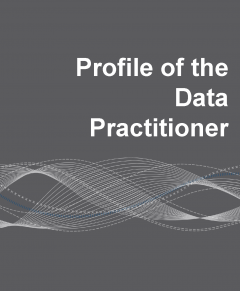This final report, from the Two-Year College Data Science Summit, summarizing the summit, current state of data science/analytics programs at two-year colleges, recommendations, recommended program outcomes, and challenges. Learn more about the summit.
By rKochevar on February 13, 2018
I’ve spent a lot of time recently thinking about how we can better teach science using data. I believe that 21st Century science is increasingly data-intensive, and that in order to teach science as it is actually being practiced, it should be possible to identify datasets and data stories relevant to most, if not all, topics in modern science to use in the classroom.
The documents included in Tools for Building a Big Data Career Path can assist schools looking to design and implement career pathways in big data. These tools have been used by community colleges involved in the NSF-ATE funded Creating Pathways for Big Data Careers (DUE-1501927). They consist of:
1. Building Blocks for a Big Data Career Pathway
This template can be used to present the programs, courses, supporting activities, school and employer linkages that comprise a school’s proposed pathway.
By jmalyn-smith on December 12, 2016
 It is no longer news that the use of data-based decision making has reached a critical mass in every industry sector.
It is no longer news that the use of data-based decision making has reached a critical mass in every industry sector.
In April 2016, a panel of Big Data experts identified the big data skills, knowledge and behaviors of a "Data Practitioner" that are needed in the workplace. The panelists represent a diverse array of industries, including biotechnology, finance, law enforcement, health care, agriculture, and public policy.
By bgranofsky on August 29, 2016
Big data continues to revolutionize almost every discipline. But a key question—how universities can prepare students, researchers and staff with the skills appropriate for success in big data—is largely left unresolved.
By rkrumhansl on August 17, 2016
The Oceans of Data Institute has put considerable energy into understanding what it means to be data literate in the age of “big data”. We, of course, are not the only ones interested in this as awareness of the shifting landscape grows. An internet search we did recently revealed attempts by organizations around the world to describe data literacy with definitions that vary in length from a short sentence to more than 200 words.
By rkrumhansl on June 30, 2016
...this is a phrase I’ve heard repeatedly from expert big data analysts since we first launched the Oceans of Data Institute in 2013. Indeed, in ODI’s 2014 survey of close to 100 big data analysts, analytical thinking and critical thinking emerged at the top of the list of skills and knowledge essential to working with big-data across a broad spectrum of disciplines.
By rKochevar on June 06, 2016
This spring is a time for celebrations for my family. We just celebrated our first year in our house and the first anniversary of my starting full-time with EDC. Over the past few weeks two of my sons have graduated from college, and this Saturday my oldest daughter is getting married. Happy days indeed!
By pmcdeed on May 20, 2016
Big data has become a big buzzword. For many though, this term remains very much a black box, its real world applications shrouded in ambiguity. For some, big data can often carry some negative connotations: they think of secret government agencies, tracking their every move. They think of large corporations following their every click, peering deep into the souls of consumers to predict their buying habits and preferences. But big data isn’t reserved only for the likes of Google, the NSA, and companies on the Fortune 500.
Pages